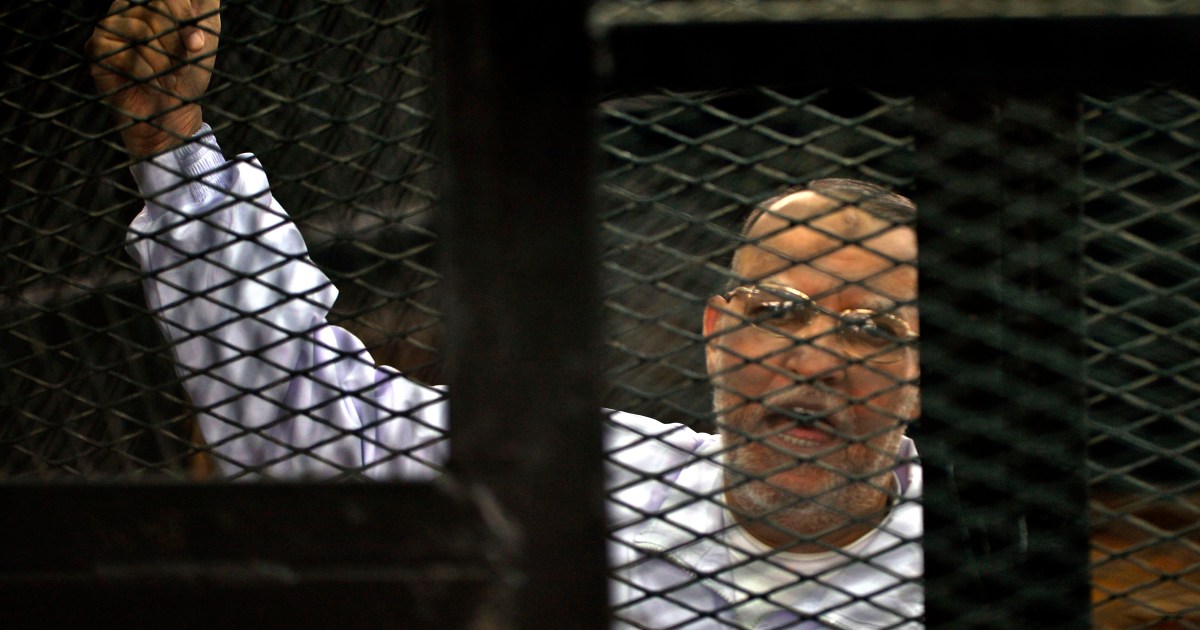The leader of the Muslim Brotherhood, Essam El-Erian, was buried at dawn today, Friday, in the presence of 12 people, amid tight security measures, according to what was reported by the Turkish Anadolu Agency and Egyptian media.
Anatolia quoted from whom it described as the informed legal source - who preferred not to be named - that Al-Arian was buried in the cemetery of the Muslim Brotherhood guides in the cemetery of "Al-Wafa Wal Amal" (east of Cairo).
He added that only 12 people from his family and his lawyer attended the burial, amid security restrictions.
The source stated that the death certificate indicated that he had suffered a heart attack, and that the Public Prosecutor's Office ordered an autopsy, which concluded that there was no criminal suspicion.
A local newspaper confirmed that the security services had transferred the body of Essam Al-Erian from inside the prison to the cemeteries of Al-Wafaa and Al-Amal, after the Public Prosecution issued permission for the burial and made sure that there was no criminal suspicion of the death, according to the newspaper.
Sources told Al-Jazeera earlier that the authorities refused to hand over the body of Al-Arian to his family for burial, and that they had informed the family that they would bury it with their knowledge.
The absentee prayer in Istanbul
On the other hand, crowds of worshipers in the Al-Fateh Mosque Square in Istanbul performed the absentee prayer on Issam Al-Erian on Friday.
The Secretary-General of the Muslim Brotherhood, Mahmoud Hussein, said in a speech after the prayers, "There are parades of martyrs from the Brotherhood, and other free Egyptians, to assure the whole world that the people of Egypt cannot settle for injustice." He added, "The free people of Egypt are still in their position 7 years ago until today (since the 2013 coup). They do not accept injustice and do not agree with the opinion of the corrupt."
For his part, the representative of the International Union of Muslim Scholars in Turkey, Abdul-Wahab Akanji, said in a speech, "Whatever assassination, injustice and tyranny they try, let them know that the martyrs of justice and freedom will keep us alive with their messages and goals for which they were martyred."
Egyptian prosecution investigation
On the other hand, the official Egyptian Middle East News Agency said today that the Public Prosecution is conducting investigations into the death of Essam Al-Erian.
She added that the forensic doctor had filed a preliminary report confirming that "the body is free of any injuries of a criminal nature."
Essam El-Erian, 66, died in his prison cell in Egypt on Thursday, and local media said that his death was due to a sudden heart attack, but Egyptian dissidents abroad and human rights activists accused the authorities of causing his death as a result of deliberate medical negligence.
His death is the latest in the chain of deaths among the leaders of the Muslim Brotherhood and hundreds of dissidents imprisoned in similar conditions, and among the most prominent of his predecessors is Mohamed Morsi, the first elected civilian president of Egypt, and the leader Muhammad Mahdi Akef.
For his part, Amr Magdy, the Egyptian file official at Human Rights Watch, condemned what he described as the regrettable violations that Al-Arian was subjected to inside Scorpion Prison.
The organization called on the authorities to conduct a prompt, impartial and transparent investigation into the death of Al-Arian, and to give his family and his lawyer full information about his health condition and the medical care provided to him.
The international organization denounced the Egyptian regime's haste and media to claim that Al-Arian's death was natural.
In the same direction, Amnesty International called on the Egyptian authorities to open an immediate investigation into the circumstances of Al-Arian's death, the conditions of his detention, and the amount of medical care he received.
Al-Erian mourned dozens of prominent politicians in Egypt and the Arab world, and thousands of commentators interacted on social media platforms with the news of his departure, expressing their grief and anger.
Al-Arian's death coincided with the seventh anniversary of the massacre at Rabaa Al-Adawiya Square, which witnessed the dispersal of the protesters of the military coup.

